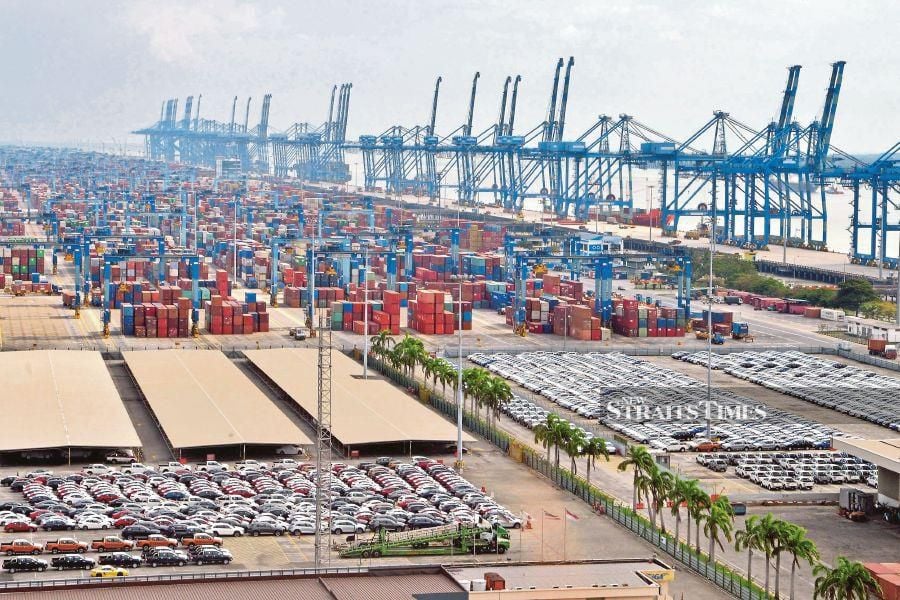
MALAYSIA was an active participant in the Comprehensive and Progressive Agreement for Trans-Pacific Partnership (CPTPP) negotiations and is a signatory, but has yet to ratify the agreement.
There have been calls to ratify the agreement from various quarters. However, the process has been deliberately slow, perhaps to ensure that all questions are responded to.
The cost-benefit analysis (CBA) carried out on the CPTPP has been released and it presents yet another argument as to why Malaysia should get on with the ratification process.
An examination of the report clearly reveals that there is a lot to be gained by getting into the CPTPP.
As with any free trade agreement (FTA), there will be some winners and some losers at the sectoral level.
However, at the aggregate level, simulation studies project a gross domestic product (GDP) that is higher by US$56 billion over the period of 2021 to 2030.
The CBA points out that not only will output increase by participating in the CPTPP but so too trade balance and investment over the period of 2021 to 2030.
Much of this is not surprising. When the cost of trade is reduced, both by lowering tariffs and non-tariff barriers, there is bound to be more trade.
Addressing non-tariff barriers is perhaps more important than tariffs because they are less direct, although as a first shot, tariffs are the first line of action.
But non-tariff barriers do restrict trade and that is why FTAs attempt to lay clear guidelines on rules and regulations to ensure that they do not restrict trade.
Of course, when trade increases, it will contribute to an increase in employment and GDP. And the CBA explicitly provides numerical estimates of the intuition that has just been outlined.
As can be expected, those goods for which Malaysia has a comparative advantage will benefit more than other goods.
There are five sectors in which Malaysia has an advantage, viz. electronic and electrical (E&E), palm oil, chemicals, optical and scientific equipment and plastics.
Typically, countries will benefit in those areas in which they have an advantage, and this will be intensified if new export destinations are opened up.
Since Malaysia does not have preferential access to Canada, Mexico and Peru, not only will trade with these countries improve but our exports from the above-mentioned sectors will also increase.
Malaysian manufacturers will also be able to source inputs from CPTPP member countries.
Sectors such as the E&E, plastics, machinery and equipment and optical and scientific equipment are highly dependent on imported inputs, so these sectors would also be able to gain from the FTA.
It is no surprise that manufacturers look forward to the ratification of the CPTPP. The Federation of Malaysian Manufacturers has, therefore, been keen to see Malaysia ratify the CPTPP.
The benefits from the CPTPP, as observed from the simulation study conducted, suggest that household income will gain an increase of up to US$60 billion over the reference period.
The CPTPP promises to result in a significant increase in tax revenue, too. This is welcome in view of the ongoing discussion on how we can increase government tax revenue, given our tight fiscal circumstances.
The CBA indicates that the CPTPP could be a game changer, and since the results are positive, the ratification of the FTA should be considered more seriously.
It has been argued before that one reason for getting into the CPTPP is that there may be other Asean member countries that may want to join the FTA. Being a first mover would be to our advantage.
Further, China has evinced an interest in acceding to the CPTPP. If that does happen, it would be to Malaysia's disadvantage if we are not a party to the FTA.
Nevertheless, there may be broader issues that we have to consider. There may also be details that we should be forewarned of.
But on the basis of the CBA, there is reason to view the proposal favourably for the economic benefits that the FTA can give us.
The writer is head of research at Malaysian Institute of Economic Research and a fellow at Institut Masa Depan Malaysia